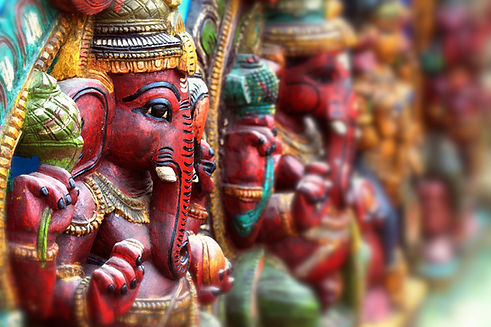Religious Education
As a school we aim to use a variety of active approaches, linked in some cases to other subjects, to explore various religious and non-religious perspectives on issues relevant to our children; providing opportunities for reflection and spiritual development.
They learn to recognise the difference between right and wrong through the study of moral and ethical questions. Exploring issues of religious faith and value, they develop their knowledge and understanding of the cultural context of their own lives.
Intent
Religious education has a unique place in the curriculum of Eastcourt. It is neither a core nor a foundation subject; the 1988 Education Act states that ‘Religious Education has equal standing in relation to core subjects of the National Curriculum in that it is compulsory for all registered pupils’.
Through our Religious Education curriculum we aim:
to engage pupils in enquiring into and exploring questions arising from the study of religion and belief, so as to promote their personal, spiritual, moral, social and cultural development.
to provide learners with knowledge and understanding of principal religious traditions and beliefs represented in Great Britain.
to develop their understanding of the ways in which beliefs influence people in their behaviour, practices and outlook.
to enable learners to apply the insights of the principal religious traditions to their own search for identity and significance.
to enable learners to become aware of their own beliefs and values and to have a positive attitude towards the search for meaning and purpose in life.
to encourage learners to develop a positive attitude towards other people who hold religious beliefs different from their own.
RE plays an important role, along with all other curriculum areas, particularly PSHE, in promoting social awareness and understanding in our children. We encourage our pupils to ask questions about the world and to reflect on their own beliefs, values and experiences. We include and promote British values, ensuring that children are aware of their rights and responsibilities as UK citizens. Our curriculum is designed to encourage creativity, imagination, enquiry, debate, discussion and independence.


Implementation
We consider the following religions:
Christianity
Islam
Judaism
Hinduism
Buddhism
Sikhism
There are no presumptions made as to the religious backgrounds and beliefs and values of the children and the staff.
We value the religious background of all members of the school community and hope that this will encourage individuals to share their own experiences with others freely. All religions and their communities are treated with respect and sensitivity and we value the links which are, and can be made, between home, school, and a faith community.
We acknowledge that each religion studied can contribute to the education of all our pupils. We promote teaching in Religious Education that stresses open enquiry and first-hand experiences wherever possible.
Legal requirements for Religious Education:
Religious Education is a statutory subject of the curriculum for all pupils in each year group and ‘should be provided for all registered pupils except those withdrawn at the request of their parents.’ (s 71 SSFA 1998)
Parents have the right to request that their son or daughter be excused from all or part of the RE provided at school.
Religious Education is generally taught on a weekly basis, but is sometimes delivered through a class topic.
Lessons are planned and delivered in a variety of ways ensuring that all children can access and participate. Interactive, practical activities encourage the children to discuss their ideas and extend their understanding of challenging questions.
Impact
Religious Education develops pupils’…
knowledge and understanding of, and their ability to respond to principal world religions, religious traditions and world views;
understanding and respect for different religions, beliefs, values and traditions through exploring issues within and between faiths;
understanding of the influence of faith and belief on individuals, societies, communities and cultures;
skills of enquiry and response through the use of religious vocabulary, questioning and empathy;
skills of reflection, expression, application, analysis and evaluation of beliefs, values and practices, and the communication of personal responses to these.
Religious Education encourages pupils to…
consider challenging questions of the meaning and purpose of life; beliefs about God, the self and the nature of reality; issues of right and wrong and what it means to be human;
understand the influence of religion on individuals, families, communities and cultures;
learn from different religions, beliefs, values and traditions, while exploring questions of meaning and their own beliefs;
learn about religious and ethical teaching, enabling them to make reasoned and informed responses to religious, moral and social issues;
develop their sense of identity and belonging, preparing them for life as citizens in a global society;
develop respect for and sensitivity to others, in particular those whose faiths and beliefs are different from their own.
Religious Education enhances pupils’…
awareness and understanding of religions and beliefs, teachings, practices and forms of expression;
ability to reflect on, consider, analyse, interpret and evaluate issues of truth, belief, faith and values and to communicate their responses.
Religious Education offers …
opportunities for personal reflection and spiritual development

